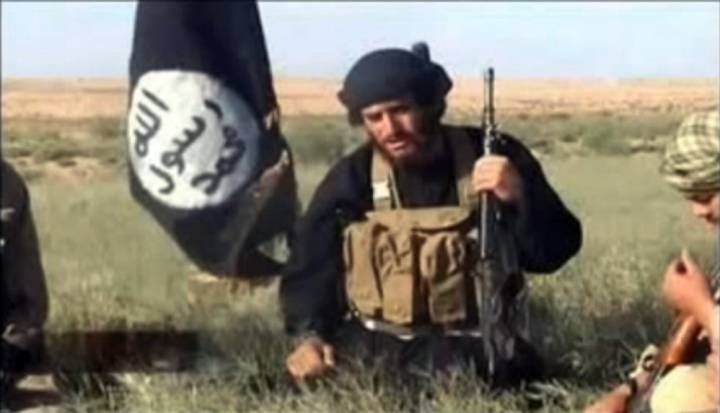
The Islamic State militant group (ISIS) announced the death of Abu Mohammad al-Adnani—its most prominent schemer, both abroad and online—via its official Amaq news agency late Tuesday. It said he was killed while "surveying operations to repel the military campaigns against Aleppo" in northern Syria.
While it remains unclear who killed Adnani, with Washington and Moscow issuing opposed claims of responsibility Wednesday, one would assume that the revelation would be detrimental to ISIS's aim of presenting itself as an entity of superior military might.
Adnani, whose real name was Taha Sobhi Falaha, served as the group's most important figure behind self-proclaimed caliph Abu Bakr al-Baghdadi, acting as its chief propagandist and orchestrator of external operations—specifically, attack plans outside of ISIS territory in Iraq and Syria.
The operation that Adnani oversaw included different arms of foreign fighters who plotted atrocities in Europe, Asia and the Arab world. This internal secret service is now known as the Emni and may have had involvement in a series of attacks abroad, including the Paris attacks, the Brussels bombings and the Istanbul airport attack, which left hundreds dead.
As ISIS has continued to lose territory, Adnani had been at the forefront of ensuring that the group adapted to maintain its role as the flag-bearer of global jihad by remaining in news headlines around the world.
His death will deal a severe blow to the group's operations and recruitment. But Adnani's replacement could be as radical. Experts are clear that, while ISIS's power is diminishing with the loss of key leaders, territory and revenue, it will continue unabated its violent campaign to hold onto its territory and to attack the West.
"When the leaders of terrorist groups are killed, the group tends to become more radical. A group in the immediate aftermath of leadership loss is more likely to direct its violence against civilian targets," says Max Abrahms, professor of political science at Northeastern University and member of the Council on Foreign Relations.
"When you remove a leader of a terrorist group, lower level members rise to the top and suddenly they are in power and that's why the target selection of the group tends to change," he continues. "However, in the case of the Islamic State, it's hard to believe that Adnani's replacement will be more extreme than he is."
Adnani, a Syrian national born in Idlib in 1977, became the voice of ISIS, posting audio messages that called for attacks in Western countries, particularly during the Islamic holy month of Ramadan. His influence in the group saw Washington place a $5 million bounty on his head.
His call for individual attacks by any means potentially inspired numerous plots, including the Orlando shooting in June, two attacks in the German region of Bavaria in July, and the murder of a police chief and a Catholic priest in France in both months respectively.
He also acted as a content editor of the group's propaganda releases, reportedly holding monthly meetings in which its operatives pored over their latest grisly execution videos and decided which to promote.
One of the longest-serving ISIS members, having joined its previous incarnation, Al-Qaeda in Iraq, after the U.S. invasion of the country in 2003, Adnani had been at the heart of the organization since the beginning. In that time, the U.S. and the Assad regime had imprisoned him in both Iraq and Syria.
Like the Lernean Hydra, ISIS at its zenith had many heads. But, like Hercules, the U.S.-led coalition has steadily cut off numerous key commanders and ministers from the body of the group, killing Minister of War Abu Omar al-Shishani and ISIS second-in-command Abdul Rahman Mustafa al-Qaduli in the months preceding Adnani's death. His removal now leaves the remaining ISIS leadership with the difficult task of filling his shoes and only one prominent leader left: Baghdadi.
"[Adnani's] death will not bring about the end of the Islamic State," U.S.-based strategic consultancy The Soufan Group, which tracks the foreign fighters flocking to join ISIS, said in its intel briefing Wednesday following the news of the ISIS spokesperson's demise. "Nonetheless, it marks a significant loss for the group and removes a leading actor from the terror stage."
Uncommon Knowledge
Newsweek is committed to challenging conventional wisdom and finding connections in the search for common ground.
Newsweek is committed to challenging conventional wisdom and finding connections in the search for common ground.
About the writer
Jack is International Security and Terrorism Correspondent for Newsweek.
Email: j.moore@newsweek.com
Encrypted email: jfxm@protonmail.com
Available on Whatsapp, Signal, Wickr, Telegram, Viber.
Twitter: @JFXM
Instagram: Read more
To read how Newsweek uses AI as a newsroom tool, Click here.








